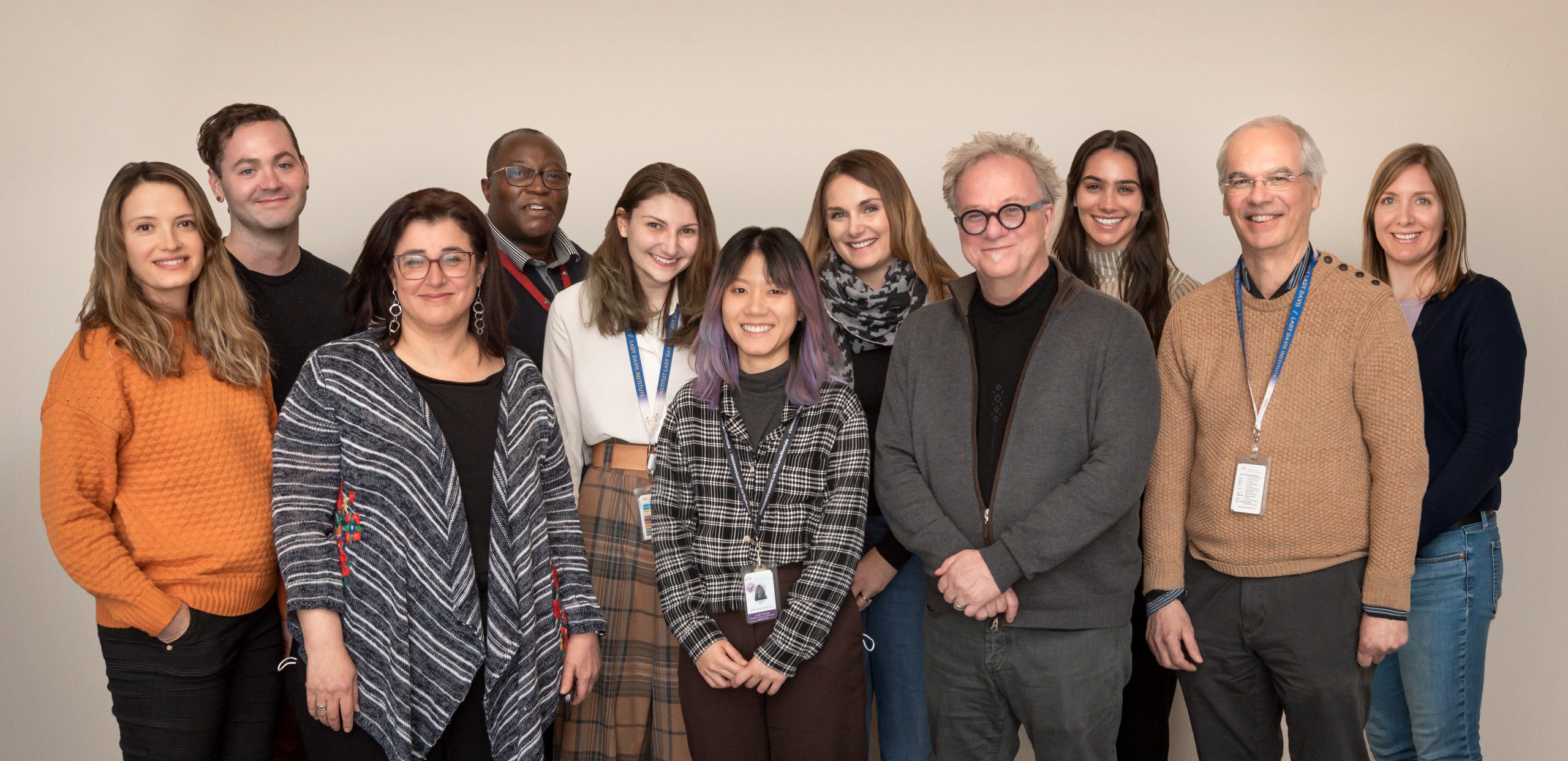As part of our commitment to Equity, Diversity and Inclusion, we strive to provide people working in the Lady Davis Institute for Medical Research (LDI) community with exemplary, highest quality of work and learning environments that are healthy, equitable and inclusive, free from all forms of discrimination and where every person can feel welcomed and recognized, but also involved and contributing to the present and the future of the LDI.
Develop a common understanding within the LDI of what EDI is, its implications for the Institute and its research teams, and the imperatives arising from it
Establish a governance structure to guide the LDI’s next steps in EDI
Conduct an environmental scan of the LDI to identify clear EDI priorities within the Institute
Please note that the LDI’s Action Plan is a living document that will evolve over time because EDI work is an iterative and continuous process that requires collaboration and responsiveness to the needs of our community.
Do you have questions about equity, diversity, and inclusion?
The Lady Davis Institute for Medical Research determined in the summer of 2022 that it wished to create an Advisory Committee to support the organization’s meaningful and focused engagement on issues of equity, diversity and inclusion.
Following an open call to the entire LDI community, in which 35 members of staff―including interns, students, post-doctoral fellows, physicians, researchers, administrators, technicians ―expressed an interest in taking part in the EDI initiative and 22 were interviewed, the EDI Advisory Committee was established.
In December 2024, after two years of intensive work, the mandate of more than half the members of the LDI’s Equity, Diversity and Inclusion Advisory Committee came to an end. An open call to the entire LDI community resulted in 11 members of staff expressing an interest in taking part in the EDI initiative and seven of them have joined the EDI Advisory Committee of the LDI.

The LDI’s EDI Advisory Committee members – Back row from left: John Heath, Thierry Muanza, Maja Jankovic, Elizabeth Guettler, Sarah Khan, and Tabitha Finch. Front row from the left: Eszter Szekely, Claudia Kleinman, Suiqiong Fan, Stephen Robbins, and Pascal Fischer. Not in the picture: Zoulikha Rezoug.
The Committee currently consists of:
* Jia Yi Zou and Alexandre Garus alternate in representing the LDI Trainee Committee on the EDI Committee.
Thank you to previous and outgoing members for their vital contribution: Olayemi Olufunke Ajala, Suikiong Fai, Tabitha Finch, Sarah Ghezelbash, Elizabeth Guettler, John Heath, Maja Jankovic, Sarah Khan, Claudia Kleinman, Thierry Muanza, Zoulikha Rezoug and Eszter Szekely.
The LDI’s EDI Advisory Committee meets every month and held its first meeting on November 8, 2022.
The mandate of the EDI Advisory Committee at the LDI is to:
Diversity consists of the conditions, expressions and experiences of different groups identified by age, education, sexual orientation, parental status/responsibility, immigration status, Indigenous status, religion, disability, language, race, place of origin, ethnicity, culture, socio-economic status and other attributes. Recognizing and valuing diversity must be accompanied by concerted efforts to ensure inclusion of diverse populations, meaning that individuals are and feel valued, respected, and equally supported.
Diversity also relates to gender identity or gender expression.
Equity means fairness; people of all identities being treated fairly.
It means ensuring that the processes for allocating resources and decision-making are fair to all and do not discriminate on the basis of identity.
There is a need to put measures in place to eliminate discrimination and inequalities which have been well described and reported and ensure, to the best degree possible, equal opportunities.
Equity is needed to achieve equality.
For example, treating people as equals in an environment in which historical and systemic disadvantages prevent people from operating as equals can be inequitable—it lacks the fairness of a truly equitable situation.
Inclusion requires creating an environment in which all people are respected equitably and have access to the same opportunities. “Organizationally, inclusion requires the identification and removal of barriers (e.g., physical, procedural, visible, invisible, intentional, unintentional) that inhibit [applicants’] participation and contribution. Inclusion also requires [NSERC and awardees] to demonstrate … values and principles of fairness, justice, equity, and respect … by being open to different voices and perspectives, developing an understanding of different cultures, experiences and communities, and making a conscious effort to be welcoming, helpful and respectful to everyone.
We have compiled a listing of EDI resources that may be helpful for our research community. This listing will be updated regularly. If you are a member of the research community at the Lady Davis Institute for Medical Research and wish to discuss an EDI related item, please contact the EDI Liaison Officer at EDI-info@ladydavis.ca or refer to the resources below. If you know of additional helpful EDI resources that are not listed here, please contact EDI-info@ladydavis.ca.
If you have questions about harassment and violence in the workplace or need help to file a complaint, please contact Dr. Robert Scarborough, Prevention Management and Biosafety Officer, at ext. 25609 or robert.scarborough@ladydavis.ca.
If there is an urgent EDI matter you wish to discuss, please contact in all confidentiality Christine Morin, Diversity, Equity, Inclusion and Belonging Office at the CIUSSS West-Central Montreal.
You have the power to make a difference! Your gift will support vital research at the Lady Davis Institute for Medical Research (LDI) that will translate into disease prevention, improved diagnoses, earlier detection, new and enhanced therapies, a better quality of life, wellness and hope for all of us.
Faire la différence, vous avez ce don! Votre contribution soutiendra la recherche essentielle menée à l’Institut Lady Davis qui permettra la prévention des maladies, des diagnostics plus précis, des dépistages plus rapides, des traitements innovants et plus performants, une meilleure qualité de vie, le bien-être et l’espoir pour nous tous.
Copyright © 2024 | Lady Davis Institute for Medical Research/Jewish General Hospital
Conception et développement : Yankee Media